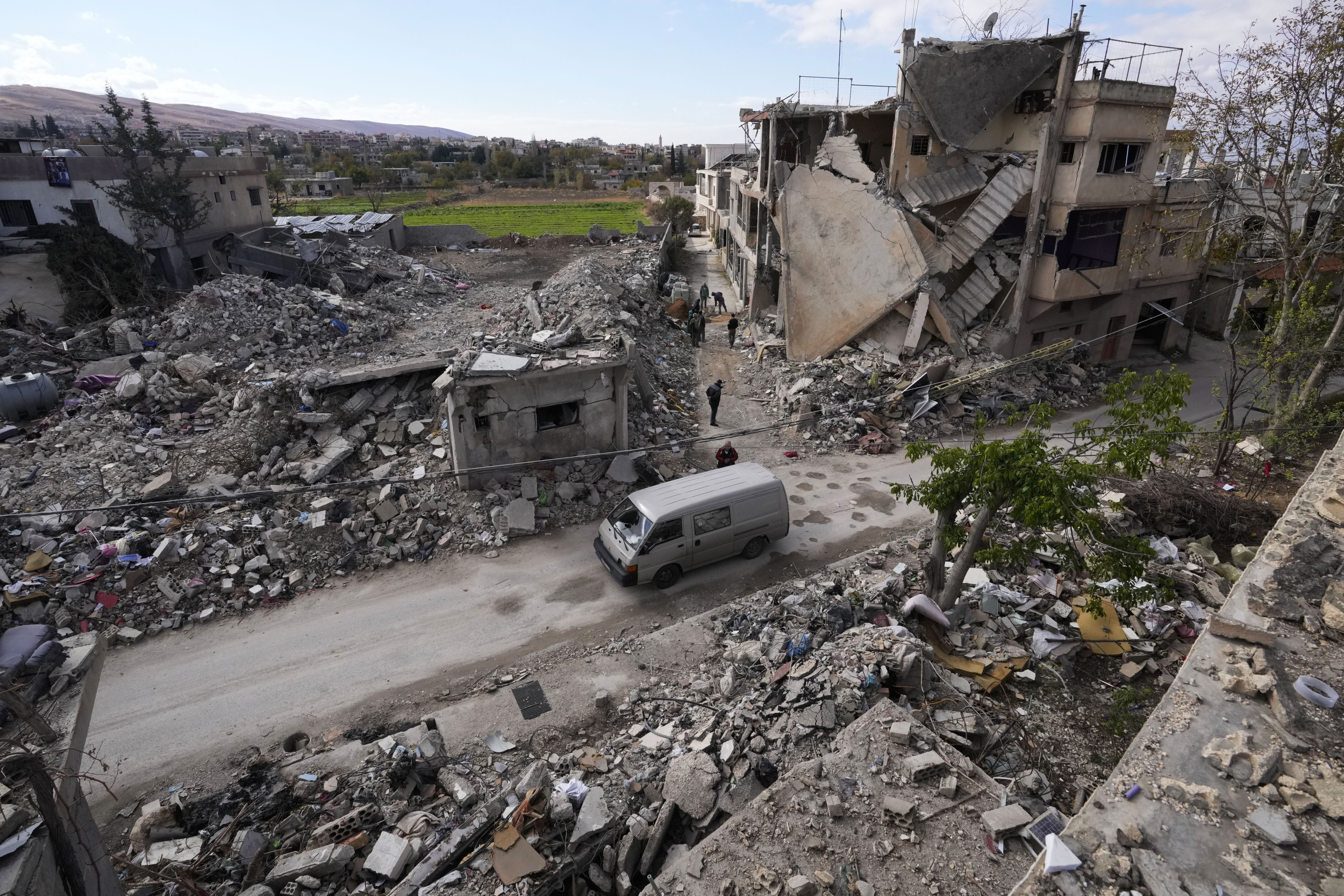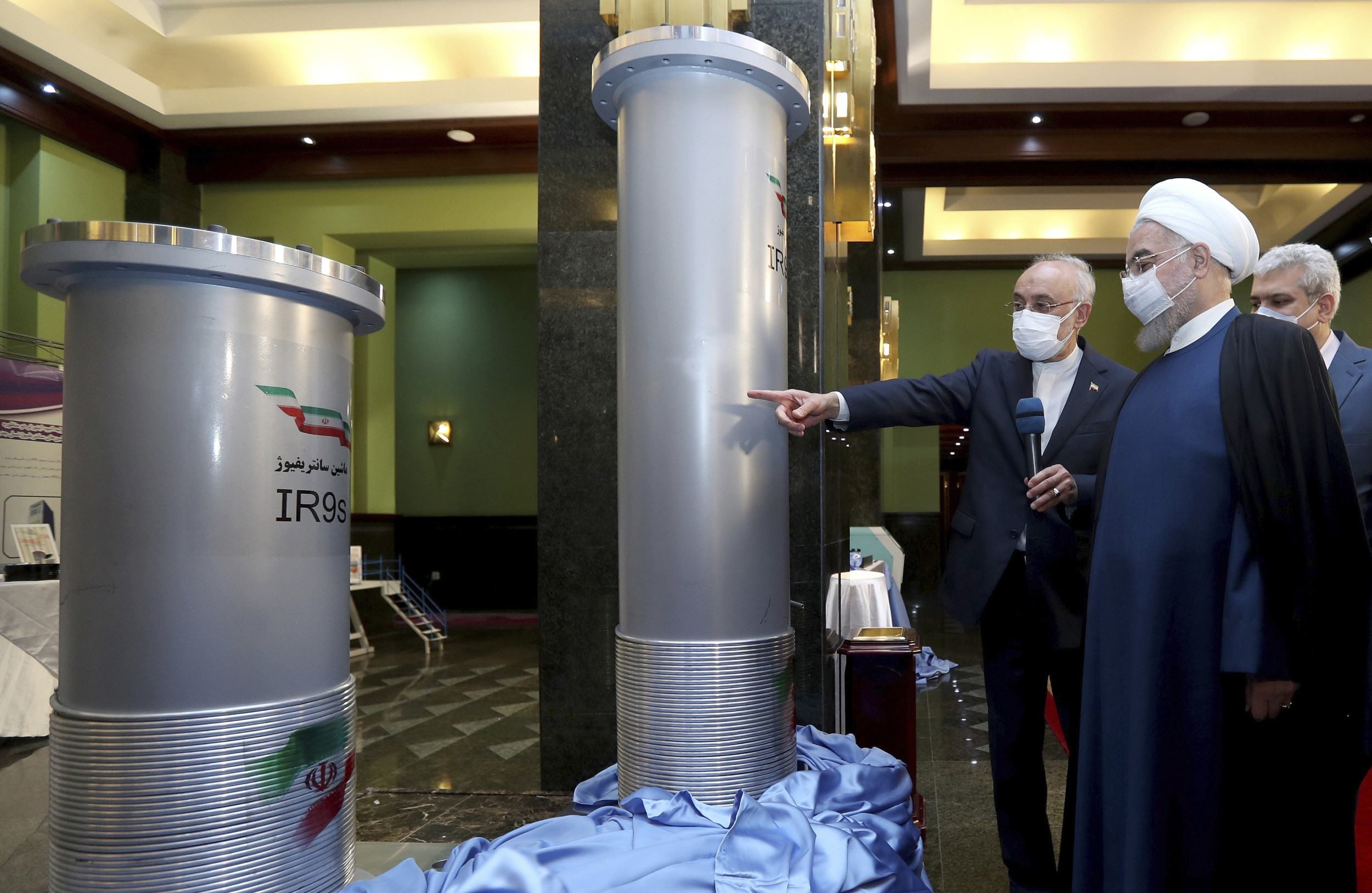The Russian ruble has experienced a sharp fall in value against the U.S. dollar, weakened in recent days by the U.S. Treasury's imposition of fresh sanctions on dozens of Russian banks, including the major lender Gazprombank.
Since its invasion of Ukraine in February 2022, Russia has faced a wave of sanctions from Western powers led by the U.S. Russia's ailing war economy has relied on heavy state intervention and support from partners including China, North Korea, and Iran.
Low oil prices in recent months as demand wanes hurt Russia's export-reliant economy, and the surge of state investment amid its war on Ukraine has weakened the ruble further.
Now, it is facing fresh pressure from U.S.-led sanctions, with more to follow from the E.U. and others, forcing the ruble's value down to near 115 to $1 at its worst in recent days, a 32-month low.
So what does this all mean for Russia and its economy? Newsweek asked experts for their views. This is what they said.

Sergey Aleksashenko, Co-Founder, Boris Nemtsov Foundation; Former Deputy Chairman, Central Bank of Russia; Former Chairman, Merrill Lynch Russia
To my mind, this is rush hour. Recent U.S. sanctions, after being enacted, could block all existing channels of import payments in dollars and capital outflow from Russia.
Many individuals/companies envisage a difficult time when the payments in dollars will be restricted and are ready to overpay rather than not be able to pay.
If I'm right, the ruble should be appreciated, and the exchange rate may stabilize between 100 rubles/$1 and 105 rubles/$1.
Even a mild (10 percent) devaluation will strengthen inflationary pressure and expectations and force the central bank to increase its rate. Moreover, devaluation will create psychological discomfort in the Kremlin.
Elina Ribakova, Nonresident Senior Fellow, Peterson Institute for International Economics
The ruble's sharp fall means higher inflation and the central bank losing its credibility.
The policy rate is already 21 percent and reported inflation looks too low for me at 8.5 percent (October).
Something is not adding up: Ruble devaluation, high credit growth, and money printing to produce tanks must mean that common goods that an average consumer buys will get more expensive.
At the same time, some will benefit—companies exporting oil and other commodities. As well as Russia's budget in the short term, which benefits from a weaker ruble as oil and gas account for about a third of budget revenues.
Vladimir Milov, Former Russian Deputy Minister of Energy; Economist and Opposition Politician
The ruble plunge is reflecting an overall rapidly deteriorating situation in the Russian economy, there's not one simple practical explanation.
Markets are losing confidence in good economic prospects. Expectations are grim that the central bank will most likely raise interest rates again at their meeting on December 20, because inflation is higher than ever and accelerating.
It is also widely understood that rate hikes are a dead-end policy, because they don't address the root problem (output not catching up with demand due to Russian industry being constrained by sanctions), but only cool down the economy.
Everything is falling—stock market, bond market, ruble, etc.
Ruble depreciation will also contribute to inflation spiking even further. In the past couple of weeks, inflation was reported as near 0.4 percent per week, which is over 1.5 percent per month. That's higher than Russia has seen in a long time.
Abbas Gallyamov, Political Consultant; Former Speechwriter to Vladimir Putin
It makes the Russian population recall volatile markets, shocking reforms, and political instability of the 1990s.
This is a very strong blow against Putin. Historically, he came as an opposition to the 1990s and the feeling that they are coming back significantly weakens his standing in the Russian public opinion.
It's a sign that he failed, that the Western sanctions are working, that he is losing the war with the West. Nothing delegitimizes authoritarian leaders more than defeat.
Russian people would have been happy to quickly win the war but they are not ready for a prolonged conflict which would lead to economic hardships.
They don't feel that it's worth it. It's not that they need Ukrainian territories so badly or that NATO expansion disturbs them so much.
Dr. Janis Kluge, Deputy Head of Research Division, Eastern Europe and Eurasia, German Institute for International and Security Affairs (SWP)
It is not clear yet if the ruble will remain at the current low levels. Most likely, the reason for the decline was U.S. sanctions on Russian banks, especially on Gazprombank. This apparently led to payments for Russian energy exports not going through.
Russian exporters and their foreign business partners are trying to resolve these issues. Once they find a new way to transfer funds, the ruble could strengthen again.
Fundamentally, the ruble is gradually weakening because inflation in Russia is higher than in the U.S. Lower exports and sanctions also play a role in the ruble's longer-term decline.
The consequence of a weaker ruble is higher inflation in Russia. Inflation has been rising in spite of an extremely high interest rate.
Alexandra Prokopenko, Fellow, Carnegie Russia Eurasia Center
Against the ruble play several factors. The dollar has been strengthening against major currencies, while oil prices have slid following Donald Trump's victory in the U.S. presidential election—a development markets interpret as signaling stronger U.S. growth prospects and increased oil production.
Additionally, government spending surged in the fourth quarter, a routine seasonal trend, though this year's figures exceeded previous benchmarks. This spending spree led to an overhang of rubles in the market, effectively increasing the supply of rubles on foreign exchange markets.
In October, the government introduced a policy requiring exporters to repatriate 25 percent of their foreign exchange revenue instead of 50 percent. This move prompted an anticipated reduction in dollar supply, further pressuring the ruble.
Compounding these factors was the rising cost of cross-border operations due to tighter sanctions on trading and financial intermediaries. This escalation drove up import costs while cutting export revenues, worsening the exchange rate balance and contributing to a weaker ruble.
Finally, the imposition of sanctions spurred heightened demand for dollars, as market participants anticipated further shortages, amplifying downward pressure on the Russian currency.
A 10 percent weakening of the exchange rate gives about 0.5-0.6 percentage points to inflation. The speed of the carryover and the scale depend on many factors, but in the end prices will still rise.
Even for the budget with its large military expenditures, the cheap ruble is useful only in the short term. Already next year, the budget will have to spend more on indexations due to high inflation and additional subsidies to businesses.
Inflation is the main problem.
Dr. Marek Dabrowski, Fellow, Center for Social and Economic Research (CASE); Non-Resident Scholar, Bruegel
Indeed, the ruble has depreciated by approximately 23 percent against the U.S. dollar since August 1, 2024. However, ruble depreciation accelerated in the last two weeks.
It will harm Russian consumers because of the passthrough effect on consumer prices.
This is one of the reasons why 12-month CPI inflation exceeds the Bank of Russia's target of 4 percent (in October 2024, it amounted to 8.5 percent) despite the central bank's high interest rates. It will also harm all import-dependent sectors.
It is less clear to me why we observe ruble depreciation just now. The global oil price, which determines the main source of foreign exchange inflows to Russia, stays at a relatively favorable level above $70 per barrel.
The strengthening of the U.S. dollar in the last few weeks as a market response to Donald Trump's victory may be one of the reasons for the ruble weakening (most emerging-market currencies depreciated).
The subsequent U.S. sanctions against the Russian financial system (e.g., against the Gazprombank) make processing export payments more difficult, so they may also have an impact.
However, I suspect the Bank of Russia is reluctant to intervene in the interbank market to defend the ruble, despite having sufficient foreign reserves. Its only reaction is the declaration that it will not purchase foreign currency on the interbank market by the end of 2024.
The reason for the Bank of Russia's reluctance to defend the ruble (by the way, it is not the first case of such a BoR attitude) may be its desire to help the federal budget. The ruble depreciation increases federal budget revenue from export and natural resources taxes denominated in euros. Of course, budget expenditure will also increase due to a weaker ruble, but less so than revenue.
Looking ahead, fiscal constraints related to war-related expenditures (not only strictly military ones but also social) are the key macroeconomic challenge faced by the Russian economy in the short-to-medium-time perspective.
Dr. Vladislav Inozemtsev, Director, Center for Post-Industrial Studies; Special Advisor to MEMRI's Russia Media Studies Project
I believe that the dollar's appreciation vis-à-vis the ruble was (it looks paradoxical even) [caused] by the increase in interest rates. In Russia, for decades the long-term yield was balanced between the investment into dollars and putting rubles on deposits.
As the Bank of Russia pushed interest rates higher, the dollar was predestined to grow since it is often considered a comparatively secure asset. The market looked forward [and saw] that the increasing mass of rubles will sometimes become hungry for dollars, and so the adjustment followed.
I would also add that the Russian officials, like Anton Siluanov, the finance minister, issued too many provocative statements saying the state is not looking ahead to regulate the exchange rate. Yesterday we all saw the result.
What it means to Russia? It completely depends on whether the financial authorities are able to stabilize the rate and push it down (I would say they have a lot of instruments for that).
If the ruble fluctuates around 115 rubles/$1, it will mean that the federal budget may get 12-18 percent more revenues next year, but inflation will rise as well.
To my mind, the Russian economy will not face a deep crisis, but its resilience to the outside pressures may somewhat decrease.
Dr. Alexander Libman, Professor of Russian and East European Politics, The Institute for East European Studies, Free University of Berlin
The main reason for the current sharp fall of the ruble appears to be the new U.S. sanctions, in particular restrictions against Gazprombank, which was in the past used for payments for Russian gas (which is still supplied to some European countries).
Currently, an absolute majority of Russian banks are under U.S. sanctions; while most likely Russian companies will find a way to organize their transactions with the outside world, it may take time, and the uncertainty triggers devaluation of the ruble. On top of that, structural factors (especially high inflation) also may play a role.
Maximilian Hess, Fellow, Foreign Policy Research Institute
The ruble's troubles are reflected of Russia's continued vulnerability to targeted sanctions, as they were driven by the blacklisting of Gazprombank and the VTB Shanghai representatives given their role in energy and China trade, respectively, with the latter route also the key vector for renminbi liquidity in Russia.



















 English (US) ·
English (US) ·